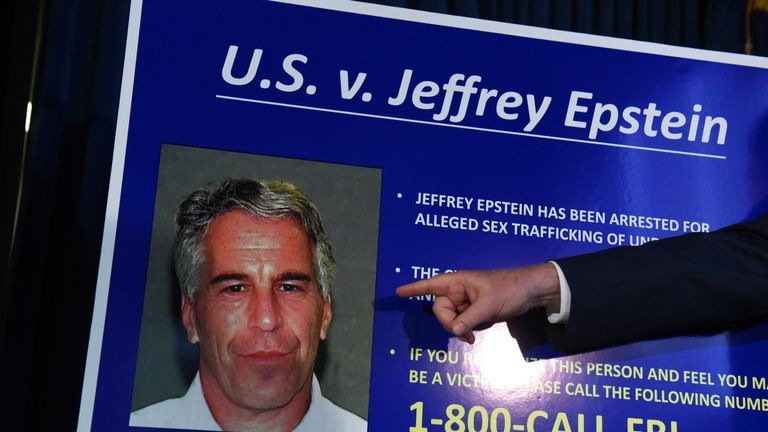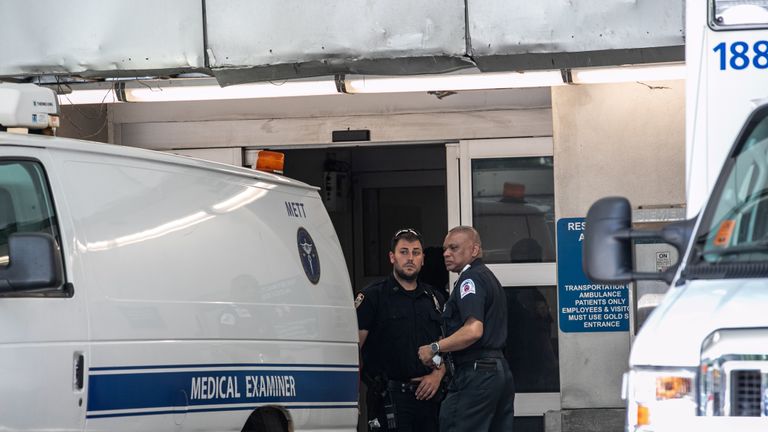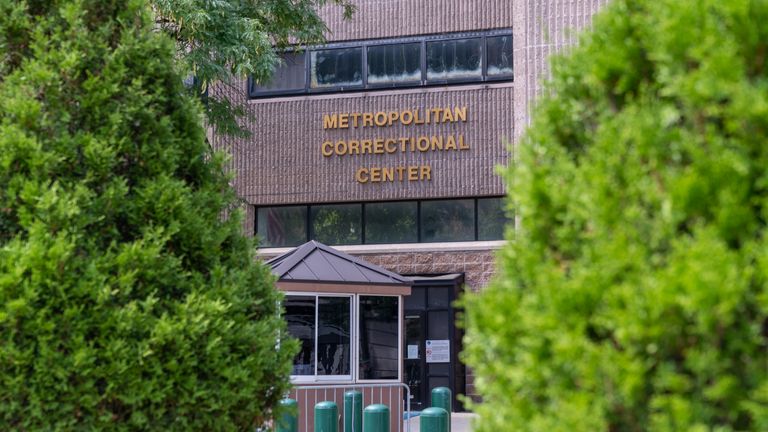Jeffrey Epstein: Prison experts ‘stunned’ sex offender was taken off suicide watch
Even before his first suspected suicide attempt last month, Jeffrey Epstein was perhaps the most vulnerable man in the federal jail system: a wealthy and well-known financier accused of sexually abusing dozens of underage girls.
He was, by all accounts, the kind of inmate who should have been under the closest possible supervision.
Instead, Epstein was taken off suicide watch in the days before he apparently took his own life, officials told NBC News, a decision that baffled former wardens and veterans of the federal prison system.
“For them to pull him off suicide watch is shocking,” Cameron Lindsay, a former warden who worked at three federal facilities, told NBC News. “For someone this high-profile, with these allegations and this many victims, who has had a suicide attempt in the last few weeks, you can take absolutely no chances.”
Epstein, 66, was placed on suicide watch after he was found passed out in his jail cell with marks on his neck inside the Metropolitan Correctional Center on 23 July, according to sources familiar with the matter.
The conditions would have required him to be moved to a special bare-bones cell where he would be outfitted in a tear-resistant one-piece smock and receive stepped-up observation from a staffer or inmate posted outside, according to Mr Lindsay and sources familiar with Epstein’s case.
But Epstein’s status was changed sometime in the last two weeks for reasons that remain unknown, officials told NBC News. The decision would normally have to have been authorised by the jail’s suicide prevention program coordinator, who is ordinarily the institution’s chief psychologist, and approved by the warden.
“Once an inmate has been placed on watch, the watch may not be terminated, under any circumstance, without the program coordinator or designee performing a face-to-face evaluation,” according to the federal Bureau of Prisons official guidelines issued in 2007.
Epstein was discovered inside his cell about 6.30am, and some union officials noted that many facilities operate with limited staffing overnight. The local federal prison union head in New York has previously complained about staffing shortages at the Metropolitan Correctional Center.
The FBI is investigating the case, law enforcement officials told NBC News. The Bureau of Prisons will also launch an internal “after-action” probe, according to department veterans.
“It’s too early to say what I think should happen, but if this did occur as we believe that it did, some staff are going to have some hard questions to answer,” said Mr Lindsay, who served as warden at the nearby Metropolitan Detention Center from 2007 to 2009.
Bob Hood, a former federal Bureau of Prisons chief of internal affairs and former warden at the ADX Florence “supermax” prison in Colorado, said he also was perplexed by the decision to remove the suicide safeguards.
“Under the circumstances, I would have a staff member sitting there or have a camera on him 24/7 while he was in my custody, purely to cover my butt,” Mr Hood said. “I know that sounds tacky, but this is not your average inmate.”
Attorney General William Barr issued a statement expressing concern over the case, saying he was appalled and that Epstein’s death “raises serious questions that must be answered.”
Senator Ben Sasse used far starker language in a scathing letter to Mr Barr.
“Every single person in the Justice Department – from your main justice headquarters staff all the way to the night-shift jailer – knew that this man was a suicide risk, and that his dark secrets couldn’t be allowed to die with him,” Mr Sasse said.
“Given Epstein’s previous attempted suicide, he should have been locked in a padded room under unbroken, 24/7, constant surveillance. Obviously, heads must roll.”
Epstein has been held at the Metropolitan Correctional Centre since July 6, when he was arrested on charges of trafficking and sexually abusing girls as young as 14 in the early 2000s. He was facing up to 45 years in prison if convicted on two counts of sex trafficking and conspiracy.
Epstein’s lawyers requested that he be allowed to await trial under house arrest at his $77 million Manhattan mansion, but a judge denied the request.
The MCC, as the facility is known, houses 763 inmates and is considered one of the harshest federal detention centres in the country. Epstein paid his lawyers to visit him nearly every day, allowing him to leave his cell and spend much of the day at a room designated for attorney meetings, according to sources familiar with his case.
:: This article was originally published on NBC News.
Source: Read Full Article





